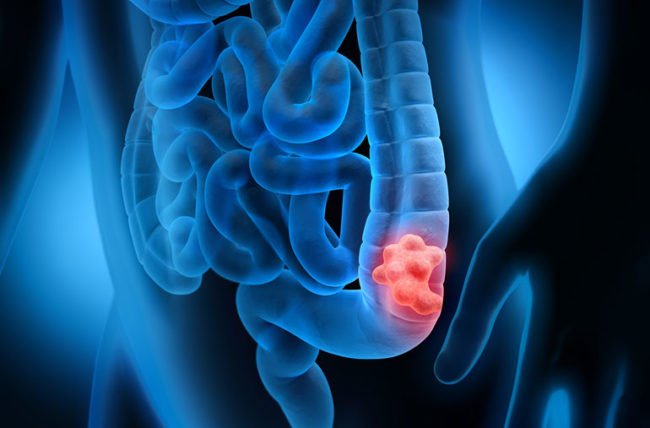Why do many young people have cancer?
Many people think that only the elderly will develop bowel cancer (also known as colorectal cancer). However, the increasing number of colorectal cancer in the United States is causing many people to call for screening sooner.
Bowel or colorectal cancer is the common name for colon and rectal cancer, that is, cancer that develops from the colon or rectum (which are parts of the colon). In the US, March is the National Month of Colorectal Cancer Awareness, a campaign dedicated to bringing attention to a disease that is the second leading cause of death for both men and women.
Every day, another 49 new colorectal cancers - usually starting in the colon or rectum - in people under 50 and 10 of them will die.
Dr. Kimmie Ng, founding director of the Center for Colorectal Cancer Prevention at the Dana-Farber Cancer Research Institute in Boston, says more and more young people have the disease and is expected to grow even more.

Cases of colorectal cancer are gradually rejuvenating.
Apri Kastura MacDonald is a case. She was diagnosed with stage 3 colon cancer at the age of 43. " She had no symptoms until the onset of the disease . She has a normal life ," said Joe Kastura, patient brother. , to speak. " At first, she had stomach problems, some blood in her stool ."
MacDonald has been battling the disease for seven years, taking the time to raise awareness and discuss the cancer that many don't want to talk about. She died two years ago after the cancer spread and the treatments stopped working.
One of the leading hypotheses about colorectal cancer in young people is obesity. But not, Dr. Kimmie Ng said her patients are hard working out, have a healthy diet and have a normal body weight.
" It was a question in cancer research that made me wonder ," Ng noted.
For many years, 50 is the recommended age for starting colonoscopy. But in response to alarming statistics, the American Cancer Society has lowered its age to 45.
Ng believes that the change will help detect the disease early, so it can be treated and improve survival.
A recent study predicts screening at age 45 that could identify 30,000 cancer cases and prevent 11,000 deaths over the next five years.
But in the US, most insurance does not cover screening before age 50 and patients are required to pay out-of-pocket.
Like any cancer, early detection is key so it's important to be aware of the symptoms. Colorectal cancer may not cause immediate symptoms, but if you notice any of the following, it is worth seeing a doctor, according to the American Cancer Society.
- Change in bowel habits (diarrhea, constipation or stools that last for more than a few days)
- Feeling like you want to go badly, but after you're done, there's still no relief.
- Rectal bleeding fresh.
- Bloody diarrhea
- Abdominal cramps or pain
- Weakness or tiredness
- Weight loss
Jim Nauen is not sure if he will survive today if he doesn't have early screening. He was diagnosed with stage 3 colorectal cancer at the age of 49. Nauen's doctors discovered a tumor about the size of a baseball.
Currently 53 years old, the father of two children in Massachusetts is being treated. He shared his story in hopes of changing the policy he believed could save many lives.
" It's too late for me to change the time of my screening, but surely the change can come to many others ," Nauen said.
- Why are more and more young Vietnamese suffering from cancer?
- Young people with cancer are getting more and more and the reason is startling
- The most common cancers are in their 20s
- The cause of young people with bowel cancer is 4 times higher than the previous generation
- Detect eye cancer in young children by turning on the flash when taking photos
- Why is lung cancer dangerous?
- Handbook of childbirth is safe for people with cancer
- 5 tips to help cancer patients stay healthy
- The cause of the death rate of young people in the US is rising
- Young people are killing themselves because the diet is too low for vegetables
- Old people see time passing faster than young people
- Cancer will increase strongly in Vietnam in the next 5 years
 Why is Australia the country with the highest cancer rate in the world while Vietnam ranks 100th?
Why is Australia the country with the highest cancer rate in the world while Vietnam ranks 100th? New drug causes cancer to 'starve'
New drug causes cancer to 'starve' Common cancers in men
Common cancers in men America's incredible discovery: The most feared cancer cell is love
America's incredible discovery: The most feared cancer cell is love